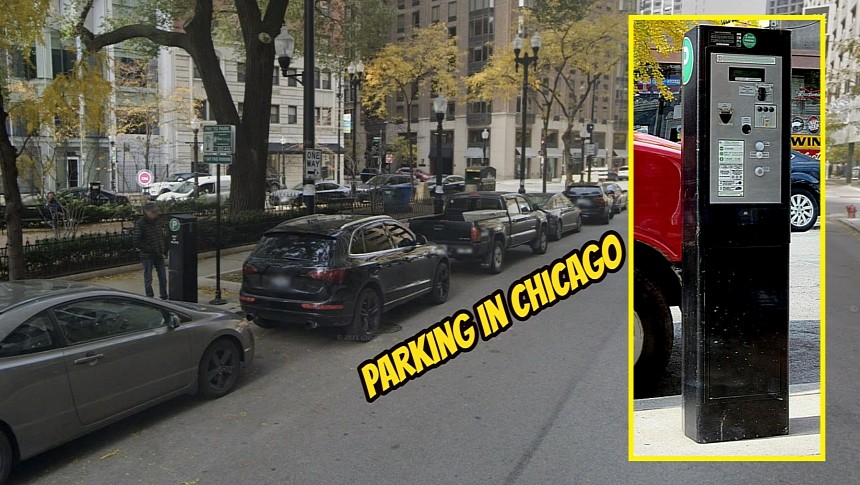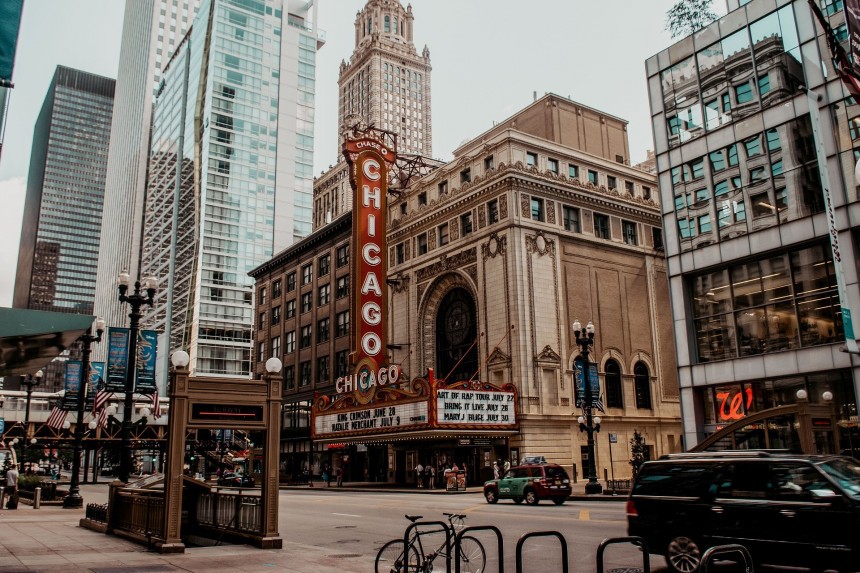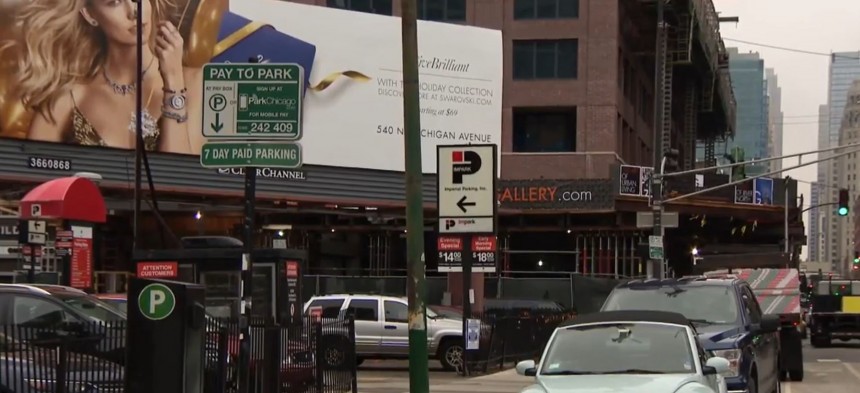Since Carl C. Magee invented the parking meter, drivers have been thinking about having some spare change in their pockets or, as is the case nowadays, a couple of bucks in their bank account. Typically, the money car owners pay to temporarily occupy a parking bay goes toward improving public infrastructure and the general quality of urban life. But Chicagoans are missing out on this revenue because of a deal that will haunt the city until spring 2084. Here's why.
In September 2008, the financial crisis unfolded completely. Brokers went wild, and the US government was finalizing Fannie and Freddie. One week later, Lehman Brothers collapsed.
Two months later, the Federal Reserve introduced the so-called "quantitative easing," a hefty asset purchase program that was supposed to complement the White House's efforts (based on taxpayer money) to restore faith in the American economy.
In December 2008, as the Bush administration was helping GM and Chrysler (today part of Stellantis) to survive, Morgan Stanley announced that it had found a buyer for Chicago's metered parking system. The city, known for its deep-dish pizza, jazz, and famous residents like Harrison Ford or Al Capone, struggled and needed money. To think of how much happened in the span of under two years because of subprime mortgages and greed…
That well-financed party was Chicago Parking Meters, LLC. It was purposely founded for this deal. The Windy City administration initially believed Morgan Stanley, an all-American entity, would be the buyer. At least, that's what the public believed at the time. The financial giant even had the funds to do it. But it preferred to involve someone else in this deal.
In March 2009, the agreement was finalized. The City of Chicago had accepted the $1,151,355,186 in exchange for allowing the newly formed company to control all the parking meters in Chicago at the time. That sum amounts to over $1.65 billion in today's money.
Law firm Katten Muchin Rosenman put the details in writing and took care of the privatization tidbits.
But what Morgan Stanley's announcement didn't include was that the city took it upon itself to give Chicago Parking Meters around 30,000 parking meters. If the public administration wanted to make a change that eliminated even one parking meter, it would have had to reimburse the lessee for the approximate value of what that stall could generate until 2084.
After the ink dried, the hourly fee quadrupled in most areas. It increased from $0.25 to $1 per hour. Besides that, the deal eliminated perks like free parking on holidays. Currently, rates range from $2.5 to $7 per hour. Frequent parkers can buy a monthly pass, which, depending on the area, can cost $43.6 or $119.
Two years later, in 2011, Mayor Richard M. Daley, who agreed to pay Katten Muchin Rosenman $720,000 for their legal assistance with the 75-year lease, joined the law firm as counsel. However, he agreed not to get involved in matters regarding the city or any other affiliated agencies.
But Chicago flourished as one of America's most important cities after the financial crisis. People kept coming, and they took their cars with them. Tourists and businesses needed transportation, too. That helped the young company recoup the lump sum it put in Chicago's budget in about 10 years. When writing, it's estimated that the private company made well over half a billion dollars in pre-tax profit.
Chicago contributed nearly $79 million to those earnings because it took away some parking spots and put a small dent in the company's expected profits throughout the lease.
Chicago also has to pay up when it wants to temporarily shut down some streets for events.
Morgan Stanley Infrastructure Investors LP, North Haven Infrastructure Partners LP, and North Haven Infrastructure Partners A Sub LP constitute MSIP Partnerships. Morgan Stanley Infrastructure GP LP is the general partner (i.e., the owner) of MSIP Partnerships. Morgan Stanley Infrastructure GP LP is an affiliate of Morgan Stanly & Co. Inc., the famous investment bank and financial services company.
Deeside Investments, which appeared in the mix after Morgan Stanley said the funds to buy Chicago's metered parking system existed, is owned by the Abu Dhabi Investment Authority (49.9%) and Redoma Sarl (50.1%). While the former is an authorized and vetted United Arab Emirates entity, the latter is a little-known company registered in Luxembourg.
However, an economic disclosure statement submitted by Chicago Parking Meters shows that it's directly owned by:
Those percentages don't reveal the complete direct ownership because Morgan Stanley's affiliates get 49.44 of the pie. There's 0.66% missing when accounting for Deeside Investments' share, too.
Depending on who gets the 0.66%, the controlling majority can shift.
Two months ago, Allianz confirmed it would sell 51% of its stake in Allianz Saudi Fransi to the Abu Dhabi National Insurance Company (ADNIC). The deal remains subject to regulatory approval in Saudi Arabia but will likely succeed.
Now, is there a connection between this agreement and Redoma Sarl? We can't confirm the existence of a relationship between the corporation controlling Deeside Investments, but you never know who might know who in such interconnected business environments.
American journalist Matt Taibbi, who is well-known for his in-depth analysis of the 2008 financial crisis and Wall Street's controversial actions, described in his book titled Griftopia that as Chicago was rubberstamping the agreement to lease its parking meters for 75 years, Morgan Stanley was already preparing to bring a third party to the table. Their ideal place to find liquidity? The Middle East!
However, not even his research could uncover if Abu Dhabi really and directly owns Chicago's metered parking system. The connection is there, and the country's main investment vehicle is certainly involved. But nobody can say for sure who is getting the whole pie.
Still, it's worth noting that Taibbi claimed Abu Dhabi could have a controlling share that it's hard to trace and pinpoint. Could it be that 0.66% missing from the direct ownership structure?
There is little to no chance that Chicago will prematurely end the lease. Some drivers tried to get it canceled. They even got the Supreme Court. But they lost. Even though the judge said the city's decision to lease its parking meters "might have been foolish" or "short-sighted," no laws were violated. Katten Muchin Rosenman did a good job!
At least the deal didn't include parking tickets. Those $50 penalties (or $100 after 30 days) end up in the city's budget. That, of course, happens only if drivers pay up. When writing, Chicago is owed around $2 billion in parking and speeding tickets.
Finally, Chicago Parking Meters is an LLC that pays no state or federal taxes. But should it? As long as it plays by the rules, why should it? It's fair game. What we all can do now is wise up. Maybe we should even demand reliable public transport in large cities to reduce our dependency on personal cars.
Two months later, the Federal Reserve introduced the so-called "quantitative easing," a hefty asset purchase program that was supposed to complement the White House's efforts (based on taxpayer money) to restore faith in the American economy.
In December 2008, as the Bush administration was helping GM and Chrysler (today part of Stellantis) to survive, Morgan Stanley announced that it had found a buyer for Chicago's metered parking system. The city, known for its deep-dish pizza, jazz, and famous residents like Harrison Ford or Al Capone, struggled and needed money. To think of how much happened in the span of under two years because of subprime mortgages and greed…
That well-financed party was Chicago Parking Meters, LLC. It was purposely founded for this deal. The Windy City administration initially believed Morgan Stanley, an all-American entity, would be the buyer. At least, that's what the public believed at the time. The financial giant even had the funds to do it. But it preferred to involve someone else in this deal.
The power of providing liquidity at the right time
Chicago Parking Meters agreed to maintain the stalls and collect all the revenue. They even invested around $5 million to replace the coin-operated parking meters with modern pedestals. It was a challenge, but a good one! It should keep the company and its operating partner, LAZ Parking, busy for 61 more years, according to the lease terms.Law firm Katten Muchin Rosenman put the details in writing and took care of the privatization tidbits.
But what Morgan Stanley's announcement didn't include was that the city took it upon itself to give Chicago Parking Meters around 30,000 parking meters. If the public administration wanted to make a change that eliminated even one parking meter, it would have had to reimburse the lessee for the approximate value of what that stall could generate until 2084.
Two years later, in 2011, Mayor Richard M. Daley, who agreed to pay Katten Muchin Rosenman $720,000 for their legal assistance with the 75-year lease, joined the law firm as counsel. However, he agreed not to get involved in matters regarding the city or any other affiliated agencies.
But Chicago flourished as one of America's most important cities after the financial crisis. People kept coming, and they took their cars with them. Tourists and businesses needed transportation, too. That helped the young company recoup the lump sum it put in Chicago's budget in about 10 years. When writing, it's estimated that the private company made well over half a billion dollars in pre-tax profit.
Chicago contributed nearly $79 million to those earnings because it took away some parking spots and put a small dent in the company's expected profits throughout the lease.
So, who is getting all the money?
According to Chicago Parking Meters' audited statements, the company is owned by Deeside Investments and MSIP Partnerships. The former has 49.9% of the pie, while the latter gets 50.1%. But it's not that straightforward.Morgan Stanley Infrastructure Investors LP, North Haven Infrastructure Partners LP, and North Haven Infrastructure Partners A Sub LP constitute MSIP Partnerships. Morgan Stanley Infrastructure GP LP is the general partner (i.e., the owner) of MSIP Partnerships. Morgan Stanley Infrastructure GP LP is an affiliate of Morgan Stanly & Co. Inc., the famous investment bank and financial services company.
Deeside Investments, which appeared in the mix after Morgan Stanley said the funds to buy Chicago's metered parking system existed, is owned by the Abu Dhabi Investment Authority (49.9%) and Redoma Sarl (50.1%). While the former is an authorized and vetted United Arab Emirates entity, the latter is a little-known company registered in Luxembourg.
- Deeside Investments – 49.9%;
- Morgan Stanley Infrastructure Partners A Sub LP (currently North Haven Infrastructure Partners A Sub LP) – 38.032%;
- Morgan Stanley Infrastructure Partners LP (currently North Haven Infrastructure Partners LP) – 11.415%.
Those percentages don't reveal the complete direct ownership because Morgan Stanley's affiliates get 49.44 of the pie. There's 0.66% missing when accounting for Deeside Investments' share, too.
Depending on who gets the 0.66%, the controlling majority can shift.
Digging deeper
But not even Al Capone could escape America's rules of business transparency. That's how we learn that Redoma Sarl, the company that controls Deeside Investments, is directly owned by Allianz Lebensversicherungs-Aktiengesellschaft (85%) and Allianz Versicherungs-Aktiengesellschaft (15%). According to Bloomberg, the former provides car, private liability, legal expenses, disability, term life, and private health insurance services in Germany. But it also appears that it's in the business of setting up new companies in different European Union countries.Two months ago, Allianz confirmed it would sell 51% of its stake in Allianz Saudi Fransi to the Abu Dhabi National Insurance Company (ADNIC). The deal remains subject to regulatory approval in Saudi Arabia but will likely succeed.
American journalist Matt Taibbi, who is well-known for his in-depth analysis of the 2008 financial crisis and Wall Street's controversial actions, described in his book titled Griftopia that as Chicago was rubberstamping the agreement to lease its parking meters for 75 years, Morgan Stanley was already preparing to bring a third party to the table. Their ideal place to find liquidity? The Middle East!
However, not even his research could uncover if Abu Dhabi really and directly owns Chicago's metered parking system. The connection is there, and the country's main investment vehicle is certainly involved. But nobody can say for sure who is getting the whole pie.
Still, it's worth noting that Taibbi claimed Abu Dhabi could have a controlling share that it's hard to trace and pinpoint. Could it be that 0.66% missing from the direct ownership structure?
Fair and square
What's certain is that the deal to lease the metered parking network wasn't a good idea. The city will continue losing money until the contract ends. Chicago is estimated to miss out on around $200 million in profits yearly.There is little to no chance that Chicago will prematurely end the lease. Some drivers tried to get it canceled. They even got the Supreme Court. But they lost. Even though the judge said the city's decision to lease its parking meters "might have been foolish" or "short-sighted," no laws were violated. Katten Muchin Rosenman did a good job!
At least the deal didn't include parking tickets. Those $50 penalties (or $100 after 30 days) end up in the city's budget. That, of course, happens only if drivers pay up. When writing, Chicago is owed around $2 billion in parking and speeding tickets.
Finally, Chicago Parking Meters is an LLC that pays no state or federal taxes. But should it? As long as it plays by the rules, why should it? It's fair game. What we all can do now is wise up. Maybe we should even demand reliable public transport in large cities to reduce our dependency on personal cars.














